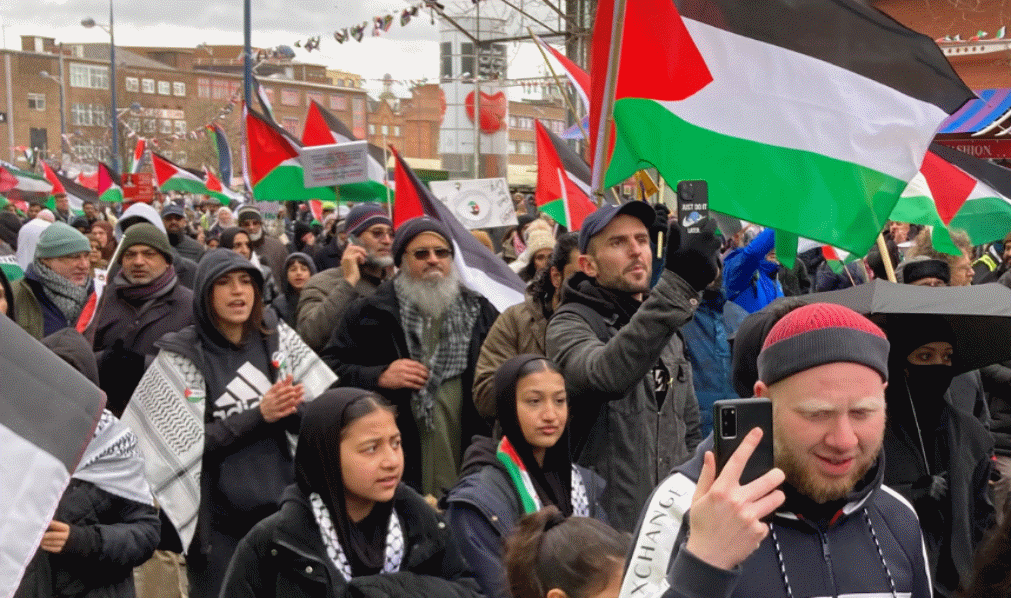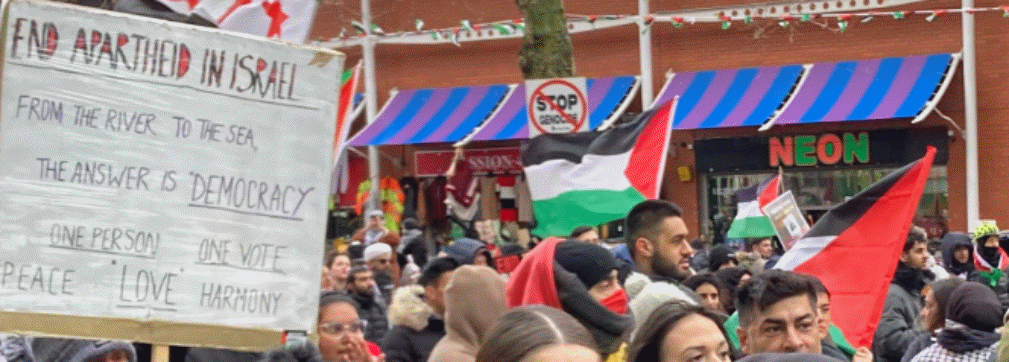By Cain O’Mahony
Around 15,000 people marched into Birmingham city centre on Saturday 20 January, in the largest protest yet in the city.

The bulk of the protesters were from feeder marches from the mainly Muslim communities of Alum Rock and Spark Hill who braved the bitterly cold winter weather for the packed rally.
There was a huge cheers for guest speaker Jeremy Corbyn – he is still hugely popular with ordinary working people.
Sadly lacking from the mass protest was the Labour and trade union movement. Only three banners were present; two from UNISON and one from the PCS. As we gripped our banners against the strong winds, there was a genuinely warm reception from the marchers – the Birmingham communities know full well the threats and pressures the labour leaders have been piling upon rank and file Labour Party and trade union members, so they thanked us for braving their wrath.
Labour Party leadership should have called for a ceasefire from the start
In the run up to the previous mass protest in Birmingham, back in October, the Labour Party General Secretary David Evans actually sent a warning message to Labour Party members saying he “strongly advised” us all to stay away, and ordered that if we did attend we must not carry Labour Party banners. A statement on Gaza signed and issued by the Birmingham City Council Labour Group even had its paragraph calling for a ceasefire removed from it. Yet, now at last Keir Starmer has joined the call for a ceasefire.
If the Labour leadership had had the political bravery to call for a ceasefire from the start, there would have been enormous support and it would have taken the lead in the fight for peace. Instead it played Little Sir Echo to the US government – all it does is show the Labour leadership as weak and being merely led by the nose by events.
Importance of Labour Movement involvement
Also, without the intervention of the labour and trade union movement, there is a danger that as anger and frustration grows at the unrelenting slaughter in Gaza, the mass ceasefire movement will become susceptible to sectarian and nationalist divisiveness. There was some disquiet on Saturday when some sections of the crowd began chanting ‘Yemen, Yemen make us proud, turn another ship around’, while a platform speaker from an ultra-left group dismissed the 7 October massacre as a ‘military action’.
Tacit support for ‘military solutions’ will not bring peace, and will split the ceasefire movement down the middle, as was clear from the mixed reactions and arguments this produced on Saturday.
That aside, the huge protest has shown the call for a ceasefire and for the Israeli state to end its murderous campaign is not going to go away – the labour leaders will not be able to dodge the issue forever.



